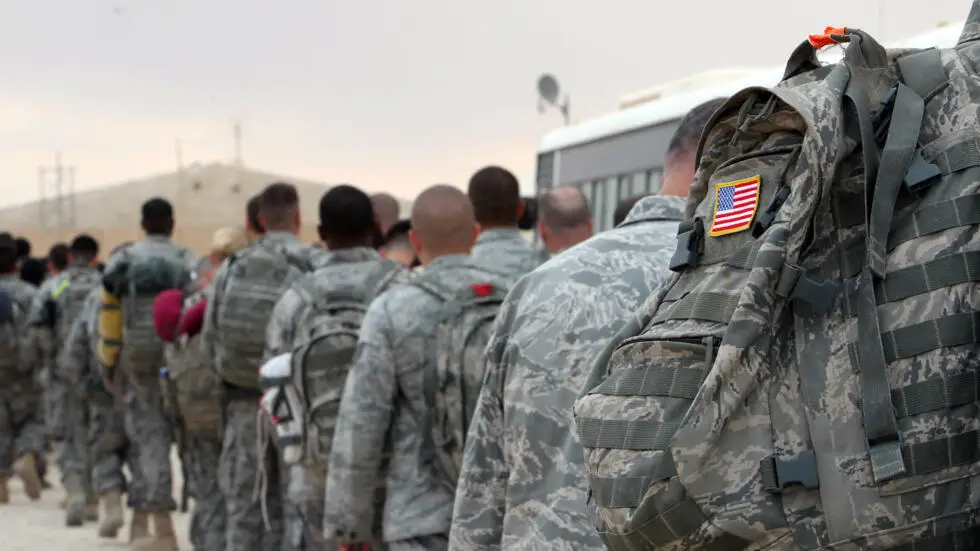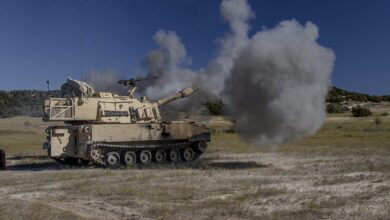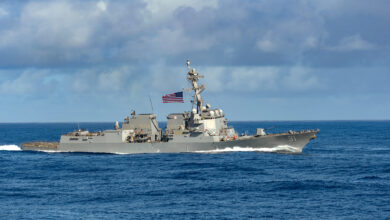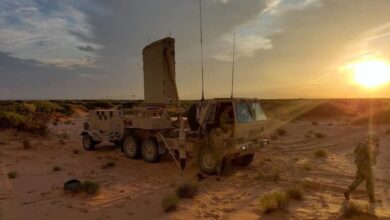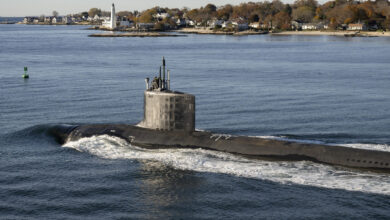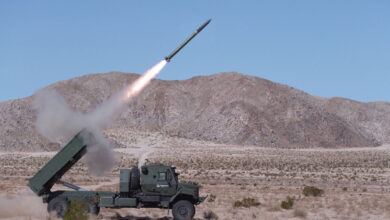Two Dead in US Strikes Against Iran-Backed Armed Groups in Iraq
US forces targeted sites used by Iran-backed militants in Iraq early Wednesday, US Defense Secretary Lloyd Austin announced, carrying out strikes that Iraqi sources said left two people dead.
The strikes came just days after US troops in western Iraq were targeted with ballistic missiles and rockets in an attack the Pentagon blamed on militants supported by Tehran.
According to Iraqi sources, the US strikes targeted Ketaeb Hezbollah, a militant faction affiliated with the former Hashed al-Shaabi paramilitaries, in the Jurf al-Sakhr area south of the capital Baghdad, as well as in the Al-Qaim region on the border with Syria.
Two people were killed and two wounded in the bombardments in the al-Qaim sector, according to an official at the Iraqi Interior Ministry and a former member of the Hashed al-Shaabi, whose fighters have been integrated into the regular army.
The US strikes come against an already explosive regional backdrop, fuelled by the war in Gaza between Washington’s ally Israel and the Iranian-backed Palestinian Islamist movement Hamas.
In a statement, Austin confirmed “necessary and proportionate strikes” in Iraq against “three facilities used by the Iranian-backed Ketaeb Hezbollah militia group and other Iran-affiliated groups in Iraq.”
“These precision strikes are in direct response to a series of escalatory attacks against US and coalition personnel in Iraq and Syria by Iranian-sponsored militias,” he said, referring to the US-led international coalition against the Islamic State (IS) jihadist group.
The US Central Command said the strikes targeted Ketaeb Hezbollah “headquarters, storage, and training locations for rocket, missile, and one-way attack UAV (drone) capabilities.”
U.S. Forces Strike Kataib Hezbollah Capabilities in Iraq
In response to attacks by the Iranian-backed militia group Kataib Hezbollah (KH), including the attack on al-Asad Airbase in western Iraq on Jan. 20, on Jan. 24 at 12:15 a.m. (Iraq time), U.S. CENTCOM forces conducted… pic.twitter.com/rSnbQdlRD4— U.S. Central Command (@CENTCOM) January 23, 2024
US and allied forces in Iraq and Syria have been targeted in more than 150 attacks since mid-October, according to the Pentagon.
These attacks have been claimed by the “Islamic Resistance in Iraq,” a loose alliance of Iran-linked militants that oppose US support for Israel in the Gaza conflict.
Classified as a “terrorist” group by Washington and subject to sanctions, Ketaeb Hezbollah has already been targeted by bombings in recent weeks. The group has publicly supported the Islamic Resistance in Iraq.
‘Multiple Attack Drones’
On Tuesday, several drones targeted an airbase in Iraq hosting US troops, causing injuries and damage, a US military official said.
“Multiple attack drones were launched” at the Ain al-Assad base in the western Anbar province, a US military official told AFP, speaking on condition of anonymity due to the sensitivity of the subject.
“Latest reports include injuries and damage to infrastructure,” said the official, adding he did not have further details as yet.
An Iraqi security official, meanwhile, said a drone was shot down as it attempted to target the base.
In a statement, the Islamic Resistance in Iraq claimed responsibility for two attacks Tuesday using drones against the base, saying they were acting in support of Palestinians in the Gaza Strip.
The same base was targeted by at least a dozen missiles on Saturday.
White House Deputy National Security Advisor Jon Finer on Sunday described that attack as “very serious,” saying it used “ballistic missiles that posed a genuine threat.”
Washington has on several occasions launched strikes on Iran-backed groups in retaliation for the attacks.
Iraqi Prime Minister Mohamed Shia al-Sudani is now calling for the international coalition to leave the country, saying that the deployment must end to ensure the country’s security.
There are roughly 2,500 American troops in Iraq and some 900 in Syria.
Since the outbreak of the war in Gaza, the Middle East has seen a surge in violence involving Iran-backed allies of Hamas.

